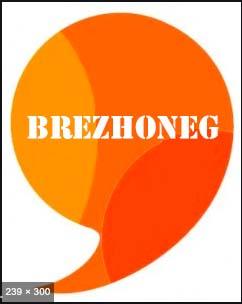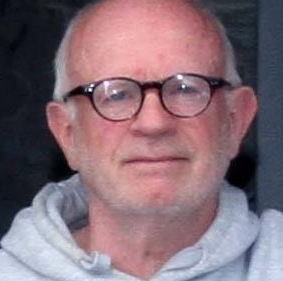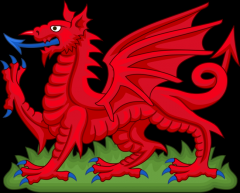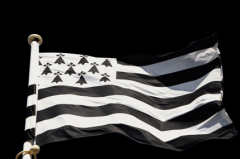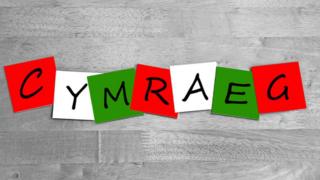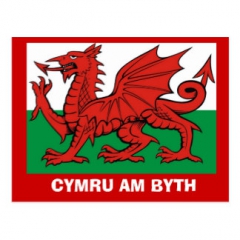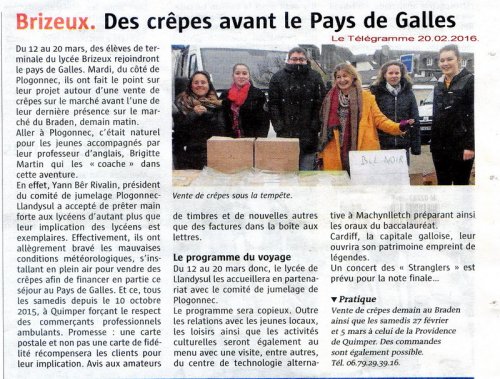-- Interceltisme --
Publié le 1/03/20 20:30 -- mis à jour le 02/03/20 07:01
To echo the festivities in Wales, the twin
commitee of Plonevez Porzay and Newcastle – Emelyn which has been active for already 27 years , invited on Saturday 29th February Olivier Caillebot producer of the DVD : “Connaissance de la Bretagne” and of the serie “La Bretagne en Histoire” together with the famous historian Jean Jacques Monnier, who is a specialist of both History of Wales and History of Brittany to give a conference presenting a comparative history of both countries from 1914 to the present time.
This event has attracted many Bretons interested by the History of Wales and Brittany, whose Celtic languages and cultures are closely related. Welsh and Breton people have since ancient times continued forging cultural and business links. On Sunday 1st March a gathering with a meal followed by an introduction to welsh dances was organised to celebrate Saint Dewi.
The two hours conference, which showed us many pictures, figures and a British film on 1st World war, allow for just a quick summary:
Wales has had a similar experience of 1st World War as Brittany, They have both lost a great number of young men who were in majority farmers since farmers were used as foot soldiers in the trenches. It was also in the trenches that many nationalist Breton organisations developed. In Brittany, sadly, it also gave many Bretons the feeling that they had to abandon their mother tongue and they forbid themselves to transmit the language to their children and grand children. Whilst the Welsh priests will continue teaching religion in Welsh at Sunday school,the catholic church under pressure of the French government will stop teaching spoken and written Breton. The war will leave a long lasting sad memory visible in the monuments erected in memory of the numerous soldiers who died in this cruel war.
Wales, country of coal mines and metal industry has seen the industrial Revolution much earlier than Brittany and prospered from the industry until the end of the first world war. Brittany was always a country of farmers and seamen. The industrial revolution arrives late in Brittany often with the help of Welsh people who come to buy mines and create industry after the 1st world war.
The years after the war were sombre for the Welsh since mines were producing less coal and miners have a much smaller salary that before or during the war. In Brittany where men drink wine rather than beer, alcoholism was rampant and devastating. Suicides, barely seen before the war, increased.
In Wales the pastor James James and his son created a song to help the fight against alcoholism. This song became the famous Welsh national anthem Hen Wad Fy Nhada, whose music the Bretons will borrow for their own national anthem: Bro Gozh ma Zadoù.
From that time the Welsh voted in majority for the labour or the liberal party, whilst the Bretons traditionally voted for the conservative party, they started only in 1981 to vote for the socialist party.
During the second world war, the mountains of Wales were used as training area by the British army. The blocade by the Germans kept the British people short of food. Rationing was the norm during and after the war. Cities like Cardiff and Swansea were heavily bombed. Brittany had also to cope with rationing and the occupation of the German army. Cities such as Brest, Lorient and Nantes were destroyed by the allied armies at the end of the war to help liberating the country. In both countries cities had to be reconstructed.
The Breton economy took off in the sixties and the seventies under the pressure of farmers movement such as the CELIB which demanded express roads and the deep water harbour of Roscoff. The Breton music and culture particularly with Alan Stivell gained popularity in the seventies. The first independent Breton primary school Diwan was created in 1977.
In Wales the seventies were dark years as Margaret Thatcher fought the Trade Unions, imported coal from Australia and Poland, and eventually forced the mines to close down.
At the same time she allowed the Welsh to have their own welsh schools and even a Welsh TV channel. Today 25% of children in Wales are educated in Welsh whilst only 3% of the children in Brittany are educated in Breton schools. This state will not allow the language to survive for very long since the average age of the Breton speaker is now 60.
In 1997 the Welsh voted through referendum for devolution giving them a Parliament which can act independently of London in matters such as Health, Education, Agriculture, Environment, Transport and some Taxes. In Brittany we can just continue dreaming of some autonomy. Whilst Wales has benefited from European subsidies for many years, which helped turn around the economy ( windmills, wood industry), a majority of Welsh people from the western areas of Wales voted for Brexit.
Beyond the troubled waters of Brexit, what is certain is that Breton and Welsh people want to continue enjoying their cultural links and develop business ventures together.
Events like truly help the understanding of the similar roots, cultures and issues of the Celtic countries.
Le comité de jumelage a reçu l’écrivain historien jean jacques Monnier et son acolyte olivier Caillebot musicien et producteur pour une conférence sur les conséquences de la 1 er guerre mondiale sur la bretagne avec les crises agricole , l’alcoolisme ,l’ immigration des jeunes et sur le Pays de Galles la crise des fermeture des mines de charbon , et de la misère et également l’immigration qui en a découlée pendant près de 70 ans
Les 80 personnes présentes ont apprécié la qualité des échanges en forme d’interview et la qualité des documents fournies pour étayer les propos des 2 compères
La conférence s’est terminé autours d’un vers de l’amitié et les échanges autours du sujet ont été nombreux
 Dans ce contexte, l’Union démocratique bretonne se félicite de la déclaration conjointe des Villes de Nantes et Cardiff, du 3 février 2020, qui ont souhaité réaffirmer l’amitié et l’engagement des deux villes à l’égard de leur statut de villes jumelles.
Dans ce contexte, l’Union démocratique bretonne se félicite de la déclaration conjointe des Villes de Nantes et Cardiff, du 3 février 2020, qui ont souhaité réaffirmer l’amitié et l’engagement des deux villes à l’égard de leur statut de villes jumelles.